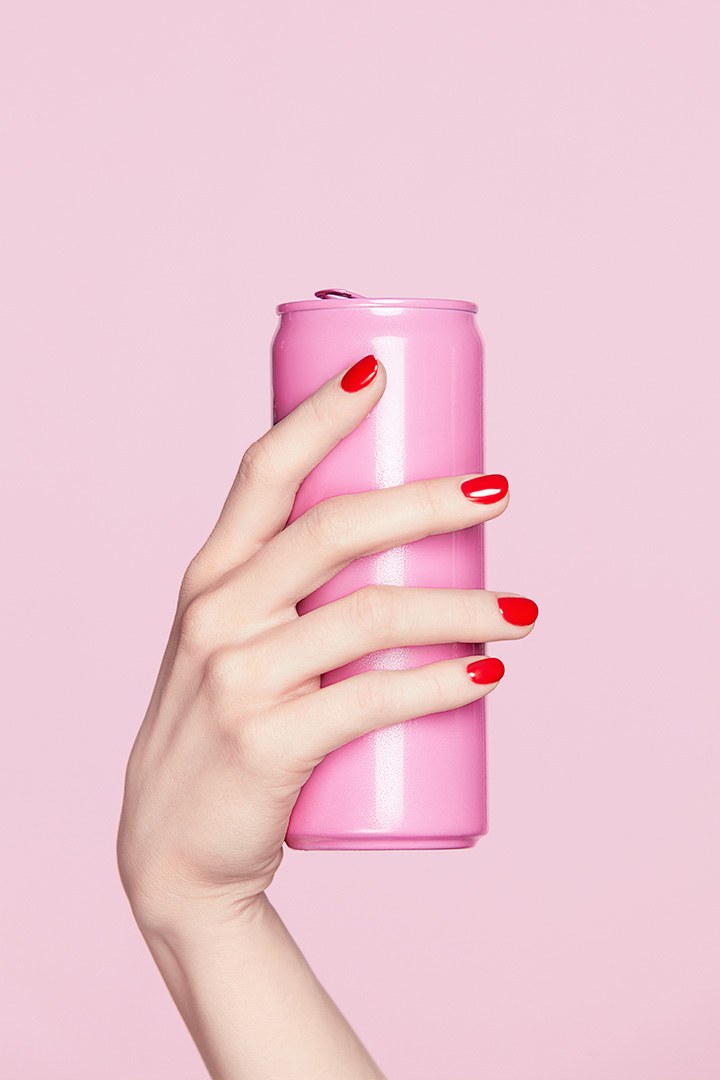Learn about brain health and nootropics to boost brain function
6 ways in which sugary, fizzy drinks are ruining your health


We all know that sugary cold drinks are bad news, but what do they actually do to our bodies? Vogue lists out the physical consequences of your soda addiction
Are carbonated drinks quite the death knell they seem to be? Nutritionist Harpreet Pasricha and health coach Payal Kothari are of the stance that they in fact are. Studies have shown that sodas (even the diet and low sugar versions), to be a reason behind poor dental health and gut health, and in extreme cases, correlated with cancer and heart disease. Needed a reason to kick the one-can-a-day habit? We’re giving you six, along with details on what each type of carbonated drink does to your body.
The different kinds of carbonated drinks (and how they affect you)
“Carbonated water or sparkling water is water in which carbon dioxide is dissolved artificially. Sparkling waters generally do not contain any artificial flavouring, though some flavoured options may have citric acid or natural sweeteners added in, along with caffeine and sodium. These are generally enjoyed by themselves, and are a very common alternative to water,” explains Pasricha. Compared to other forms of soda, the health risk of increased consumption of sparkling water are minimum. There are few researches that point out the correlation of sparkling water with poor gut health (acidic reflux, gas or flatulence) due to the processes of dissolving carbon dioxide in water. “Some people may observe bloating and water retention after consuming sparkling water. This happens because sparkling water has a lower PH and is acidic in nature,” she warns.
Club soda is artificially produced by passing pressurised carbon dioxide through water. “To enhance taste, club soda generally contains additives such as table salt, sodium bicarbonate, or potassium bicarbonate to add a slightly salty flavour. This is most commonly used as a mixer in alcoholic drinks or used with lemon to make fresh lime soda,” adds Pasricha. It may be low on sugar but is not an ideal alternative to water, so the Goa-based celebrity dietician advises caution. “Due to the addition of salt, sodium bicarbonate, sodium chloride, potassium sulphate, it can lead to excessive bloating or water retention, as well as inflammation issues like irritable bowel syndrome or inflammatory bowel disease.”
“These flavoured sodas are carbonated drinks with zero nutritional value, and come loaded with sugar, natural or artificial colouring, sweeteners, caffeine and additives,” explains Pasricha. Since soda is chock-full of artificial colouring, additives and sweeteners, it is acidogenic and can even be carcinogenic in nature.
Weight gain seems to be the most obvious side effect, since soft drinks have no zero nutritional value and the ingredients are simply empty calories. But Kothari says that’s just the tip of the iceberg. “The food and beverage you consume and your microbiome bacteria work hand in glove to keep your gut healthy. The chemicals and artificial sweeteners are bad for your gut bacteria,” she explains. Researchers in Nanyang Technology University in Singapore discovered that added artificial sweetener’s damage bacterial strains just the way they damage DNA and protein. An unhealthy gut can lead to a myriad of illnesses from acidity, and IBS to dementia and depression,” she adds.
2) They lead to a loss of calcium in the body
Being acidic in character, carbonated beverages are known to erode bones due to the loss of calcium from the body. “Phosphorus present in soda can interfere with calcium absorption, causing brittle bones. This results in increased susceptibility to osteoporosis later on in life,” adds Pasricha.
Soda is high in sugar and it is not hard to see that sugar is bad for gums and our teeth. Kothari explains why. “A can of cola has approximately 17 teaspoons of sugar which is way above the dietary recommendation of WHO. Men are meant to consume 150 calories per day, which is nine teaspoons of sugar, and women 100 calories per day, which is six teaspoons,” she says. The acids in the soda can create an acidic environment in the mouth, and then the sugar feeds the bacteria present, leading to cavities and tooth decay.
Experts also point out to several studies that note a correlation between the chemicals and colouring agents used in food and an increased risk of cancer. According to Pasricha, this is not just a case of fear mongering, because soda consumption can boost the tendency to develop breast or prostate cancer later on in life. Kothari further elaborates, saying “Drinking just two sugary drinks a week increases the load on your pancreas. It has to produce double the insulin to control the blood sugar in your blood, therefore doubling the risk of pancreatic cancer.”
5) They may have an impact on heart health
Beverages laden with added sugars have a negative effect on the heart. “Colouring and preservatives cause inflammation to the veins and arteries, leading to vascular problems. Adding fizzy drinks to alcohol or sipping on such drinks when you wake up regularly can have adverse heart damaging effects,” counsels Kothari.
“It affects melatonin sleep hormones, making it difficult to sleep,” explains Pasricha. Kothari also says that fizzy drinks have a direct connection with brain damage and memory loss. The consumption of sugary drinks can throw you off your diet plan, gut and overall health in just two days. Her advice: opt for a fresh lime soda or water, coconut water or just plain infused water instead when hanging out with friends, working or studying.
Also read:
Click here to view full article